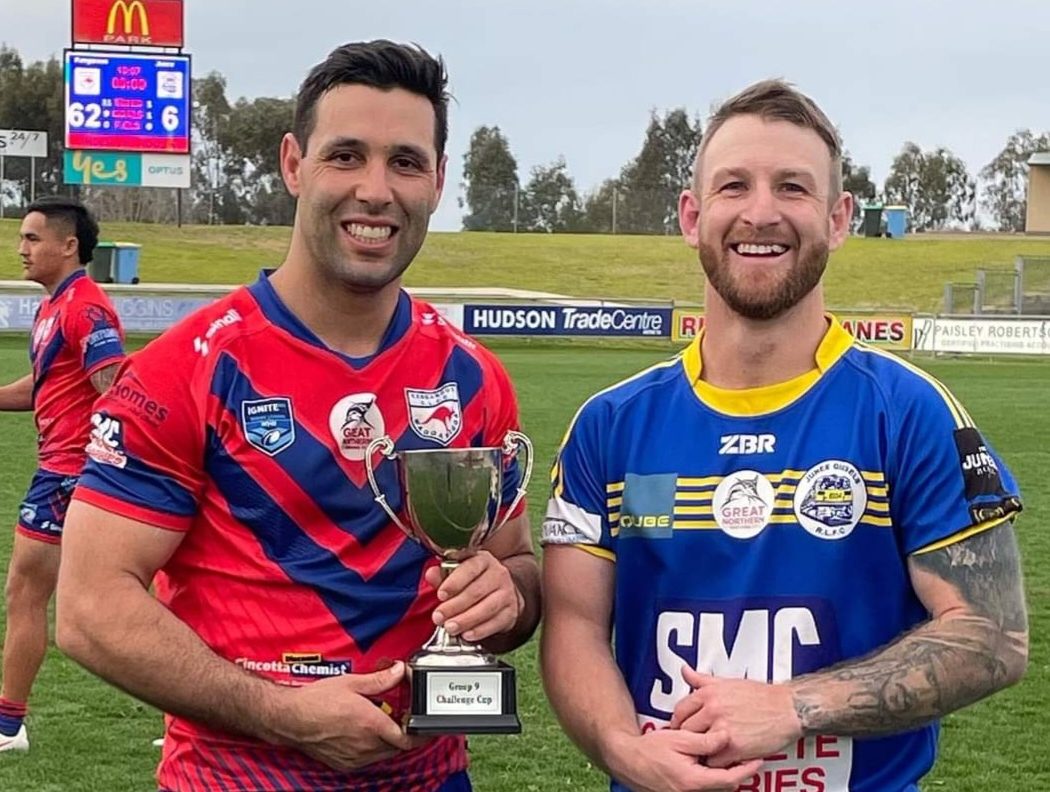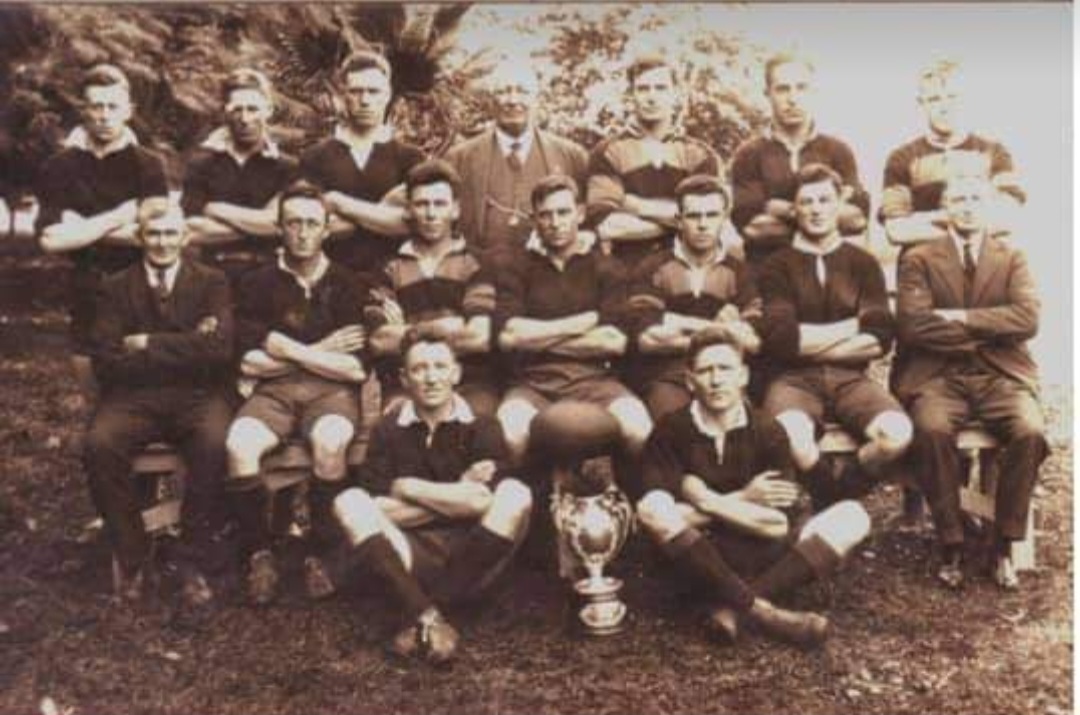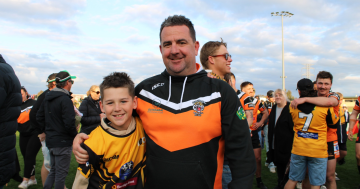
Wagga Kangaroos’ Matt Rose holds the current Group 9 Challenge Cup after successfully defending it against Daniel Foley’s Junee Diesels this season. Photo: Group 9 Rugby League.
Challenge Cups have a rich history in Riverina rugby league, and in season 2022 Group 9 reintroduced the format, with the new silverware being well received by clubs, players and fans.
Group 9 president Andrew Hinchcliffe said: “The Challenge Cup is a good concept aimed to drive interest and game promotion in the competition.”
This was certainly the case looking back at the history of rugby league in the Riverina.
Challenge Cups appealed to country clubs in the early years because they were an excellent way to make money.
With fierce inter-town rivalry, a great deal of excitement was generated before the matches, and this translated into fans going through the turnstiles.
It was reported in the 1930s that if a club could retain a cup for three or four consecutive games, it would be guaranteed a successful financial year.
The Maher Cup held pride of place in NSW country football, but it may come as a surprise to some readers that the challenge system was also represented by many other trophies from the 1920s onwards.
The Bancroft Cup, Horselman Cup, Tulk Cup, Farrar Cup, Southern Districts Championship Cup, Black and White Cup, Wagga Motors Cup and Jack Hore Gold Cup were all challenge cups that teams from Group 9 and the Riverina played for.
There was even an O’Farrell Cup; yes, O’Farrell Cup, for all those local cricket fans reaching for the telephone.
The O’Farrell Cup is an example of a competition with some interesting qualification requirements.
To be eligible, a side had to be from a town within an eight-mile (about 13 km) radius of the main southern rail line from Cootamundra to Albury, or a town on one of the rail-line branches. The competition was popular, and Wagga had a great run in 1926, making six successive defences.
The Horselman Cup could be challenged for within a radius of 150 miles (240 km) from Gundagai (rail or road), according to laws published in 1925. The Federal Rovers from Canberra challenged Gundagai in 1926, but by 1928 the laws were amended, as Griffith travelled to Hilston to win the Cup.

Gundagai with the Maher Cup in 1927. Photo: Craig Harris.
The Maher Cup, which originated in Tumut, has enough tales to fill several volumes.
The 1922-23 Cootamundra side won 17 consecutive Maher Cup games, with that number being eclipsed by the great Gundagai team of the early 1950s when it won 24 in a row over the 1951-52 seasons.
Modern-day rugby league followers would be familiar with the Weissel Cup as the Group 9 under-18 competition, but in the 1930s that trophy was contested by senior teams.
Young had great success in this competition throughout the 1930s and ’40s, with a try scorer in a 1946 game by the name of Powderly perhaps being a relation of the players who frequently pop up in contemporary programs.
Temora was a club that featured strongly in all of the cup competitions, including some of the lesser-known ones.
In 1922, Temora took the Tulk Cup from Leeton, but lost it to Ardlethan the following season. Temora and Leeton would meet again for the trophy in 1923, with the match holding a great deal of significance in the respective communities.
Leeton arrived in Temora the day before and was put up in various hotels by the host club, with a dance and dinner also put on. Griffith and West Wyalong were other clubs that had success in the Tulk Cup.
Junee had a great run of success with the Wagga Motors Cup, which was played for by Group 9 clubs from 1929 onwards. Tumut also held the cup for significant periods in 1929 and 1930.
The Bancroft Challenge Cup was donated by Mrs L B Bancroft of the Club House Hotel Gundagai (later the Gresham) and was originally set for challenges from within 40 miles (64 km) of Gundagai, but eventually, teams from all over Group 9 would vie for the impressive trophy.
The Southern Districts Championship Cup was another local competition, but it also had teams challenge Group 9 sides from as far as Queanbeyan.
The Jack Hore Gold Cup was predominantly a Group 11 cup, and in 1933 it was restricted to that competition. Before that, it was won by Group 9 clubs Temora, Young and Junee.
In the modern era, Young held the Group 9 Challenge Cup in 2022, while the Wagga Kangaroos are the holders at the end of the 2023 season.









